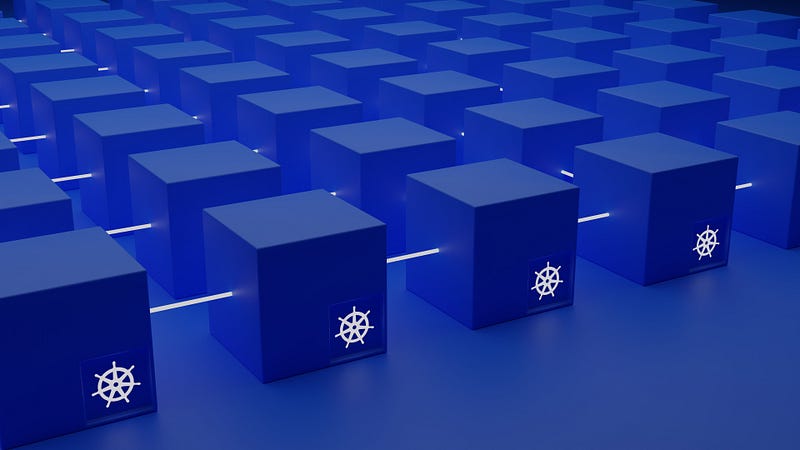Understanding the Importance of Kubernetes for Data Engineers
Written on
Chapter 1: The Role of Kubernetes in Data Engineering
As the trend of containerizing applications grows, Data Engineers are increasingly required to work with Kubernetes. This situation raises the question: is it essential for Data Engineers to learn Kubernetes, and will it enhance their effectiveness in the field?

Photo by Growtika
In this article, we will examine Kubernetes's significance in the Data Engineering realm and determine if it is a vital skill for success.
What is Kubernetes?
Originally created by Google, Kubernetes facilitates the deployment, management, and scaling of containerized applications.
But what exactly is a container?
Simply put, a container is an executable package that contains everything required to run an application, including code, dependencies, and system libraries. The process of creating and managing these containers is known as containerization.
Why opt for containers over virtual machines (VMs)?
The primary advantage of containers lies in their portability. They can run on any system that supports containerization, allowing you to deploy applications seamlessly across various environments.
Kubernetes has emerged as the industry standard for container orchestration and horizontal scaling.
How Does Kubernetes Operate?
Consider a Kubernetes cluster. Here’s a high-level overview:
- Nodes: These are worker machines that provide the necessary computational resources for running containerized applications, enabling the scalability that Kubernetes is known for.
- Kubelet: Each node has an agent called kubelet, which is responsible for executing pods, monitoring their health, and managing resources.
- Control Plane: This is the cluster’s "brain," overseeing the nodes and the applications running on them. It comprises several components, such as:
- API Server: This exposes a RESTful API for user interaction with the cluster.
- etcd: A key-value store that holds the cluster’s configuration data.
- Scheduler: Responsible for allocating applications to nodes based on resource availability and requirements.
- Controller Manager: Monitors the cluster's state.
- Pods: The smallest deployable unit in Kubernetes, serving as a logical host for one or more containers.
- Services: These expose pods to the network, providing stable IP addresses and DNS for applications while balancing traffic across multiple pods.
- Deployments: Used to manage the rollout and scaling of applications.
The Importance of Kubernetes for Data Engineers
Given the complexity of Kubernetes, one might wonder about its relevance to Data Engineers. Shouldn't this knowledge primarily fall under the purview of DevOps or Infrastructure Engineers?
While it's true that Kubernetes knowledge may not fall strictly within a Data Engineer's role, having a fundamental understanding is beneficial.
- Should you be able to create a Kubernetes cluster from scratch? No.
- Should you understand how Kubernetes functions to deploy and manage data processing workloads? Yes!
Leveraging Kubernetes as a Data Engineer
Consider the following scenarios:
- Are you using Apache frameworks in your daily tasks? If so, deploying and managing tools like Spark, Hadoop, Airflow, or Kafka on Kubernetes can simplify resource management and scalability.
- Are you handling real-time streaming data? Kubernetes can efficiently manage and scale the nodes processing those incoming data streams.
- If you are already utilizing cloud services like Google Cloud Composer, why is Kubernetes still relevant? Custom workflows that aren't supported by existing cloud solutions may require Kubernetes. It also allows for integration with tools or APIs not available in pre-built solutions, offering greater flexibility and control over your processing environment.
In my opinion, a basic understanding of Kubernetes is essential for Data Engineers. Regardless of whether you use custom or pre-built solutions, being able to troubleshoot specific issues is crucial. I believe that troubleshooting is a vital aspect of any job, albeit often underrated in today's fast-paced tech landscape.
Wrap-Up
While Data Engineers don't need to be Kubernetes experts, having foundational knowledge can significantly advance their careers, whether it's for deploying data pipelines or troubleshooting issues.
Please share your thoughts in the comments: should Kubernetes be regarded as a necessary skill for Data Engineers?
Thank you for reading! In future articles, we will delve deeper into Kubernetes applications in Data Engineering projects, so stay tuned!
Any feedback or questions are always welcome and appreciated!